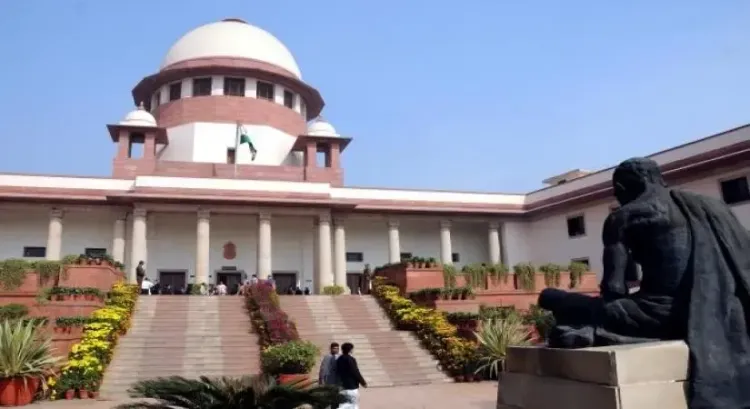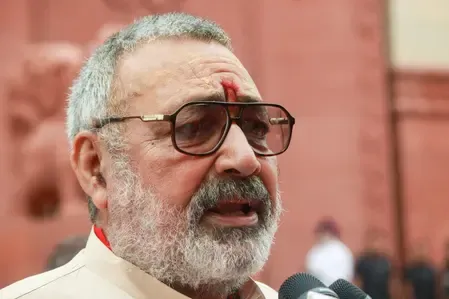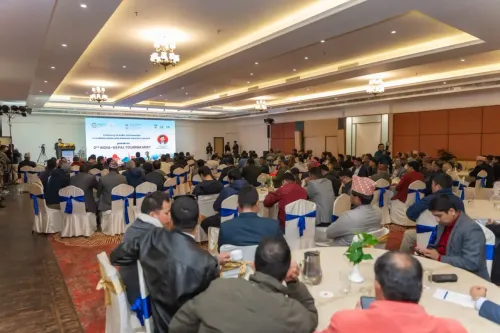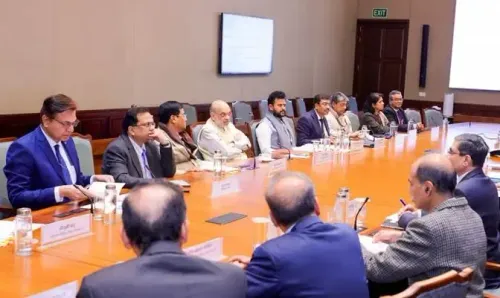Will the Justice Gavai-led Bench Hear the Pleas Against the Waqf (Amendment) Act?

Synopsis
Key Takeaways
- The Waqf (Amendment) Act, 2025 aims to enhance transparency in waqf property management.
- The Supreme Court has agreed to hear challenges to the constitutional validity of the Act.
- Concerns have been raised about previous misuse of waqf provisions.
- Justice B.R. Gavai will preside over the hearings.
- The amendments do not infringe on essential religious practices.
New Delhi, May 5 (NationPress) A bench of the Supreme Court, presided over by Chief Justice of India (CJI) Sanjiv Khanna, convened on Monday to order that a series of petitions contesting the constitutional legitimacy of the Waqf (Amendment) Act, 2025, be brought before the Justice B.R. Gavai-led Bench for subsequent hearings.
At the beginning of the session, CJI Khanna mentioned that the Bench, which also includes Justices Sanjay Kumar and K.V. Viswanathan, had reviewed the submissions, albeit not extensively, and did not plan to reserve their judgment at this provisional stage due to his upcoming retirement.
"We will schedule this before Justice Gavai's bench on Wednesday or Thursday," announced the bench.
CJI Khanna is set to retire from the highest judicial office on May 13 after reaching the age of 65. Following his exit, Justice Gavai, who is currently the most senior puisne judge, will take the oath as the 52nd CJI.
In the prior hearing, the apex court provided a week’s timeframe for the Centre, state governments, and Waqf Boards to submit their initial responses.
The court has designated five writ petitions as the lead cases and indicated that other petitions would be treated as intervention applications, instructing the registry to rename the titles of the proceedings to "In Re: The Waqf (Amendment) Act, 2025".
During the hearing, the Union government assured the Supreme Court that it would not remove provisions regarding 'waqf by user' or include non-Muslim members on the Waqf Board.
As the matter was adjourned for further discussion on May 5, the apex court noted that the upcoming hearing would serve as a preliminary session, with potential for interim orders if necessary.
In its initial affidavit, the Centre articulated that amendments were introduced to curb the misuse of waqf legislation, which had led to encroachments on government properties, while also ensuring the proper management and transparent operation of the Waqf Boards across the nation.
"It has been reported that the waqf provisions have been misused to encroach on both private and government properties. It is alarming to find that following the amendment made in 2013, there has been a 116 percent increase in the auqaf area," stated the Union Ministry of Minority Affairs.
The Centre's response document submitted to the apex court highlighted that many Waqf Boards had been operating in a "highly non-transparent manner," often failing to disclose information publicly or only providing partial details. It noted that under the previous system, due to a lack of proper safeguards, both government and private lands were classified as waqf properties.
"The provisions outlined in Sections 3A, 3B, and 3C address the situation that has persisted for decades. The affidavit mentions shocking instances where government lands or even private properties were designated as waqf properties," it elaborated.
The Union government emphasized that the Waqf (Amendment) Act, 2025, was enacted to modernize the management of waqf properties in India through transparent, efficient, and inclusive strategies. It contended that the reforms implemented focus solely on the secular and administrative dimensions of waqf institutions—such as property management, record-keeping, and governance structures—without infringing upon fundamental Islamic practices or principles.
On April 28, the Supreme Court declined to entertain a new petition challenging the amendments to the Waqf Act, 1995. The CJI Khanna-led Bench advised the petitioner that it could not engage with numerous petitions on the same subject and suggested filing an intervention application in the challenges against the Waqf (Amendment) Act, 2025, if deemed appropriate.










